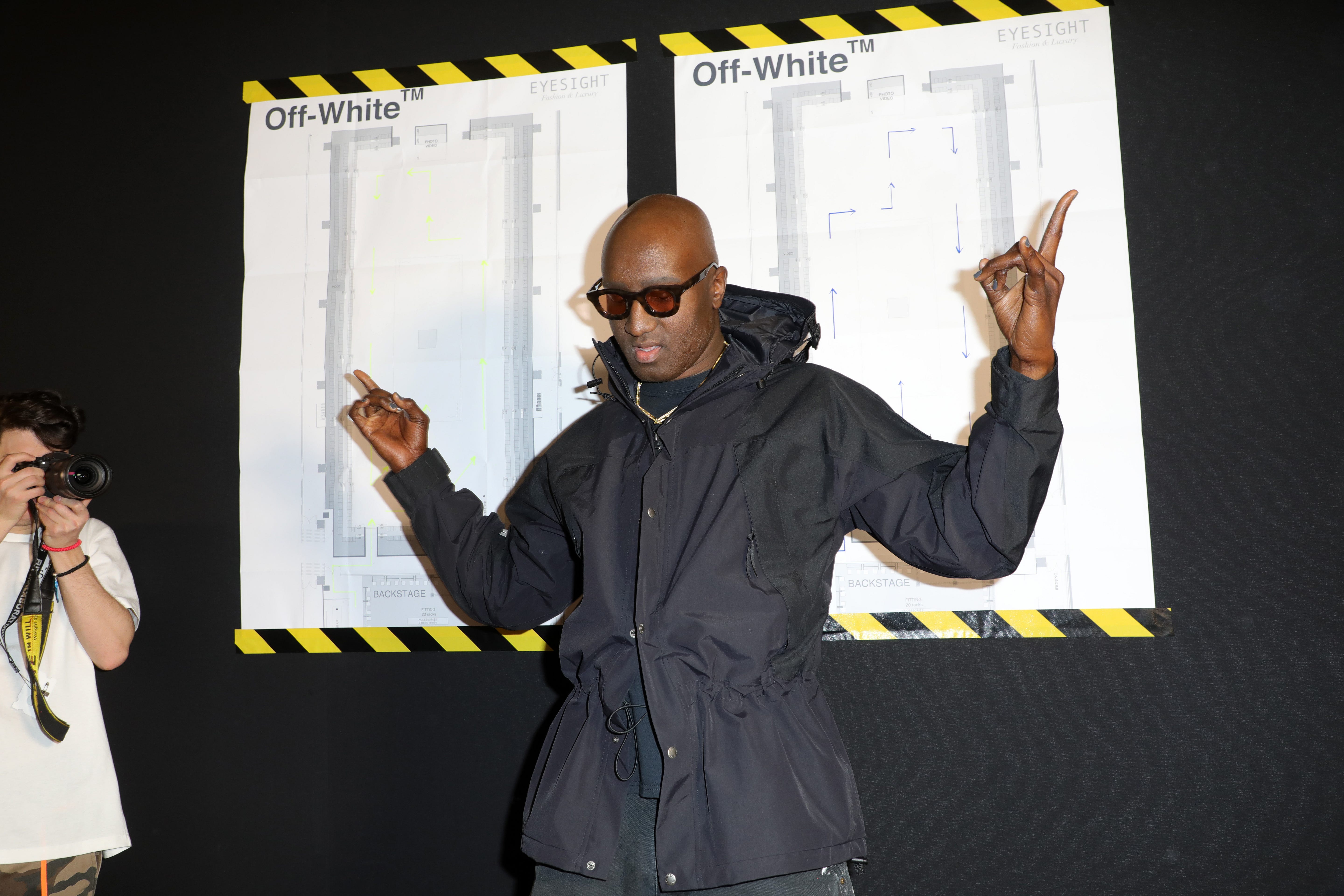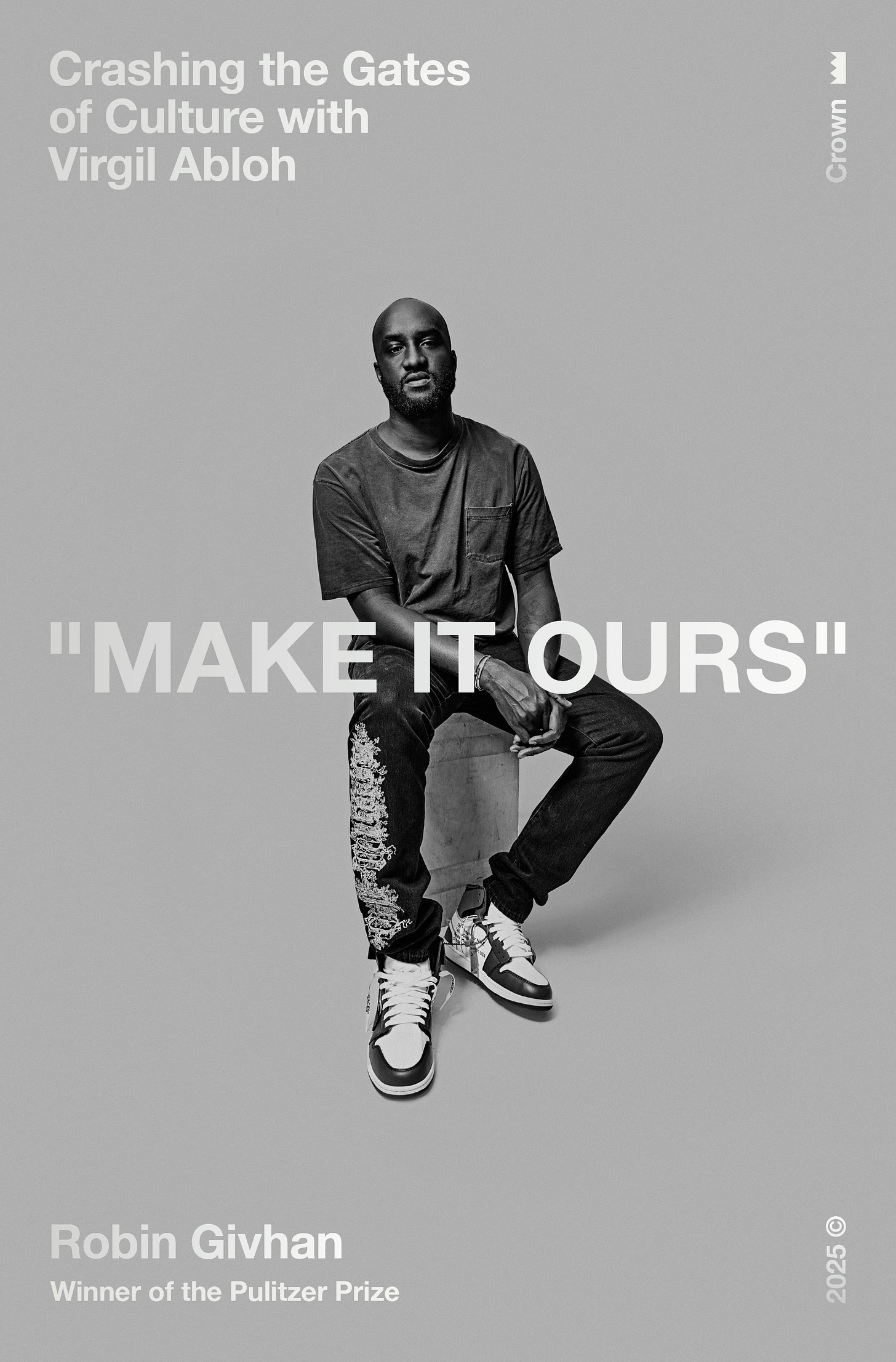How Virgil Abloh rewrote the rules of luxury
Pulitzer Prize-winner Robin Givhan assesses the legacy of the 'odd duck' fashion designer who helped create the luxury industry we see today

What does luxury even mean? The one thing we’ve learned from our reporting is that the concept of luxury is subject to almost constant change. Today, trainers are a collectible asset class, $500 T-shirts are cultural artefacts and cool is defined by hip-hop. Old ideas of connoisseurship, taste and craft were challenged as once niche companies such as Louis Vuitton and Christian Dior became global, multi-billion dollar brands.
One of the most influential figures behind that shift was Virgil Abloh, who helped redefine the boundaries of luxury before his death in 2021. Today, however, LVMH, the group that was the fastest to embrace these new ideas faces significant challenges to its sales and share price, while arch-rival Hermès, with its more traditional approach to luxury, continues to grow.
“Make It Ours”, a new biography by Washington Post critic-at-large Robin Givhan, the only person to ever win a Pulitzer for fashion criticism, assesses Abloh’s legacy and his profound effect in creating the “mass luxury” industry we see today. We spoke to her about how this son of Ghanaian immigrants from Illinois became the first Black artistic director of Louis Vuitton, and the profound impact he had on the business of luxury.
Mimma Viglezio takes us inside Bernard Arnault’s business empire and tells us why she left for Kering, one of the most senior people ever to defect from LVMH to its arch-rival. Paid subscribers can read our two-part interview series:
Givhan was drawn to write about Abloh because of the tension between the widespread critical reaction to his work at Off-White — she has previously written that some of his clothing designs lacked originality and didn’t significantly advance the fashion vocabulary — and the “excitement and enthusiasm for the work” from the public. “I was really struck by the sense of loss when he died. There was tension there. As a writer, that’s an interesting place to explore”.
“Abloh broadened the definition of what luxury could be”, said Givhan. “He was not the first person to do this but he definitely accelerated the process”. Traditionally, luxury “was something that required a certain level of connoisseurship. You needed to really understand quality and construction and fabric and history to fully appreciate a luxury product”.
Take footwear, which in traditional luxury might be embodied by a pair of handcrafted, bench-made shoes in fine calf leather from Northampton, the home of English shoe-making. These shoes would have been made in the same exacting manner for the past hundred or so years, the design slowly evolving from those originally worn by aristocrats, but ultimately not changing much at all.
Paid subscribers can discover how short-sellers are betting big against some of luxury’s most powerful conglomerates:
Abloh, and a whole new generation of men, turned that value-system on its head. “He really said that luxury is whatever you value”, said Givhan. “And, if you value a pair of Air Jordans in a particular colorway, then that counts as luxury”. This was not a democratisation of luxury, but a new kind of hierarchy that bubbled up from the street, and from sport and music, especially hip-hop and skateboarding.
‘When someone says “it’s a luxury brand”, I’m not really sure what that means today other than it’s probably going to be expensive’
-Robin Givhan
All of which combined to create “streetwear”, a somewhat vague and nebulous concept which defined how a whole generation of fashionable men dressed. “I think for some people it is a good thing because it makes them feel less estranged from this sort of aspirational world of fashion”, said Givhan. “It offers a certain amount of respect for those ideas that might be outside of what has always been the traditional thinking about what’s valuable, what’s beautiful, and what’s worth investing in. So in those sorts of cultural ways, I think it was quite good”.







